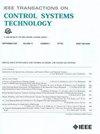柔性航天器的有限时间自适应滑模容错姿态控制
IF 3.9
2区 计算机科学
Q1 AUTOMATION & CONTROL SYSTEMS
引用次数: 0
摘要
提出了一种计算量最小的柔性航天器自适应容错姿态控制系统。它提供了卓越的能源效率和强大的反unwind能力。首先,考虑柔性附件的振动效应、惯性不确定性、外部干扰以及与作动器相关的故障(不对准、偏置和有效性损失),重新定义了作动器性能矩阵的航天器系统动力学。该控制方案通过引入带约束的改进的非奇异终端滑模(MNTSM)曲面和模态振动观测器(MVO)来估计柔性附件引起的振动。然后,基于所设计的滑动流形,采用自适应律和开关函数对集总扰动进行估计和补偿。随后,提出了一种抗解卷有限时间自适应滑模容错控制律。所提出的控制的显著特征是它能够同时处理在执行器故障存在下的解绕和模态振动,并展示有限时间精确的姿态跟踪。利用李雅普诺夫理论和有限时间理论证明了该控制的稳定性和有限时间收敛性。最后,通过数值仿真验证了所提出的控制方法在执行器无故障和故障情况下的有效性。本文章由计算机程序翻译,如有差异,请以英文原文为准。
Finite-Time Adaptive Sliding Mode Fault-Tolerant Attitude Control for Flexible Spacecraft
This article presents an adaptive fault-tolerant attitude control (FTAC) system designed for flexible spacecraft with minimum computational burden. It offers exceptional energy efficiency and robust anti-unwinding capabilities. First, the spacecraft system dynamics are redefined for the actuator’s performance matrix by considering the flexible appendage’s vibration effects, inertial uncertainties, external disturbances, and faults associated with the actuators (misalignment, bias, and loss of effectiveness). The control scheme is conceived by introducing a modified nonsingular terminal sliding mode (MNTSM) surface with an imposed constraint, and a modal vibration observer (MVO) estimates vibrations induced by flexible appendages. Then, based on the designed sliding manifold, an adaptive law and switching function are employed to estimate and compensate lumped disturbances. Subsequently, an anti-unwinding finite-time adaptive sliding mode (AFASM) fault-tolerant control law is proposed. The remarkable characteristic of the proposed control is its ability to simultaneously handle unwinding and modal vibrations in the presence of actuator faults and demonstrate finite-time precise attitude tracking. The stability and finite-time convergence of the proposed control is established using the Lyapunov and finite-time theory. Finally, numerical simulations illustrate the effectiveness and efficacy of the propounded control for fault-free and faulty actuator scenarios.
求助全文
通过发布文献求助,成功后即可免费获取论文全文。
去求助
来源期刊

IEEE Transactions on Control Systems Technology
工程技术-工程:电子与电气
CiteScore
10.70
自引率
2.10%
发文量
218
审稿时长
6.7 months
期刊介绍:
The IEEE Transactions on Control Systems Technology publishes high quality technical papers on technological advances in control engineering. The word technology is from the Greek technologia. The modern meaning is a scientific method to achieve a practical purpose. Control Systems Technology includes all aspects of control engineering needed to implement practical control systems, from analysis and design, through simulation and hardware. A primary purpose of the IEEE Transactions on Control Systems Technology is to have an archival publication which will bridge the gap between theory and practice. Papers are published in the IEEE Transactions on Control System Technology which disclose significant new knowledge, exploratory developments, or practical applications in all aspects of technology needed to implement control systems, from analysis and design through simulation, and hardware.
 求助内容:
求助内容: 应助结果提醒方式:
应助结果提醒方式:


